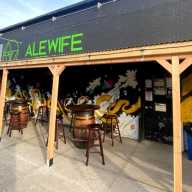Immigrant populations are more vulnerable to certain kinds of frauds, and the Queens District Attorney’s office is trying to prevent them before it has to prosecute them.
In order to further that goal, Executive Assistant DA Jessie Sligh paid a visit to the April luncheon meeting of the Flushing Chinese Business Association, for a “common sense talk.”
Sligh focused on the use of “Power of Attorney” documents as a source of personal tragedy for many unsuspecting elderly people. A person who gives someone their power-of-attorney, gives them the right to sell their house, spend their money and even take out loans in their name. Too often, Sligh noted, that’s exactly what happens.
These powers can only be revoked by filing another document, Sligh continued, and automatically end when the person who granted them dies. So they aren’t a substitute for a Will or estate planning.
In many other countries, a Notary Public is the closest thing to a lawyer that small town people will ever use for assistance. In some immigrant communities, Sligh warned, unscrupulous persons pose as Notaries and act as attorneys illegally.
He advised that you should only use a lawyer for legal work, and to call the New York State Bar Association to find an attorney in your area.
Having an attorney is also critical when dealing in contracts. Sligh pointed out that the practice of “handshake deals,” which are common in some immigrant communities, are an invitation to financial disaster, as are “contracts” written in a foreign language.
Since a foreign-language contract can only be enforced as it is translated into English, the likelihood that it won’t say what a signer thinks it says is greatly increased, Sligh warned.
Another dangerous practice is the “all cash deal” for real estate. Sligh recounted several examples of people getting cheated by paying cash for houses and condos that the seller didn’t own.
He explained that by following conventional business procedures, a “title search” is done to prove that the sale is legitimate, and “title insurance” guarantees that the buyer can recover their money in the event of a mistake.
Holding up a sheaf of papers, Sligh pointed to the clip holding them together as a warning. “Read every page,” he said, adding, “Don’t sign anything blank or with blank spaces, because you don’t know what will be put there.”
Sligh also ticked off several points which “too many people ignore,” that are sure signs of an attempted swindle:
































